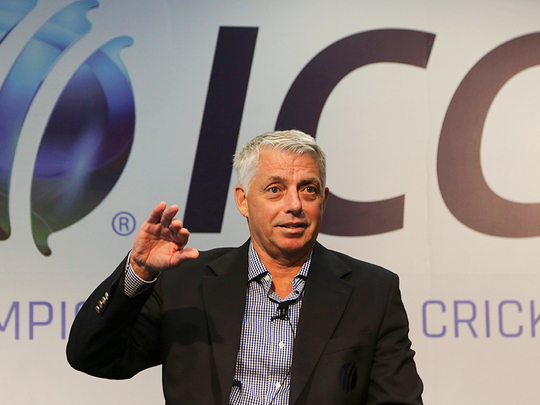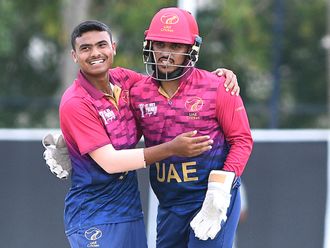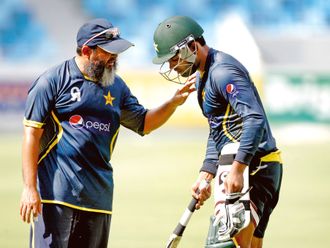
Dubai: The disclosure of International Cricket Council (ICC) about the number of investigations launched in the last 12 months — in an effort to keep the game clean — is surely to polarise opinions about it’s degree of success.
A figure of 32 cases in a year, including eight players as suspects, may not seem a bad number but the ICC’s limitations in handling the menace over nearly last 25 years has still not found an answer. The “explosion of T20 tournaments,” according to Alex Marshall, general manager of ICC Anti-Corruption Unit, is a soft target for the corruptors of the game — but the proliferation of these franchise leagues have swamped the game over the last decade.
Marshall, during his joint press conference with CEO Dave Richardson and Geoff Allardice, general manager of Cricket Operations, on Tuesday, had been particularly severe on the T20 leagues but the governing body seems to be ambivalent about their stance towards the mushrooming tournaments.
“I know a lot of bookmakers like T20s, but I don’t think it’s correct to say that increasing the number of T20 matches will lead to an increase of the risk,” Richardson said.
A look at the proliferation of the T20 leagues will tell you its own story — when the IPL was launched in 2008, the only other ongoing league was the Big Bash in Australia. Today, there are at least eight with varying degrees of success in India, Pakistan, Australia, England, West Indies, Bangladesh, Canada and Afghanistan.
The Afghanistan Premier League has got the nod only this year, while there are new ones on the anvil like UAE T20 as well as the T10 tournament — which is in its second year.
Marshall went on explain the dangers that lurk around T20 tournaments. “The corruptors love the explosion of T20 tournaments. They have suddenly given them a host of new opportunities to try and influence these events,” he said.
Marshall said that corruptors also are looking for new opportunities like Under-19 and women’s cricket and revealed that the corruptors are even designing their own tournaments like it happened in Ajman.
The murmur of corruption in the game had been dormant for a while till Al Jazeera came up with some startling disclosures a few months back. “The Times of India and the Sun did sting operations and they shared the contents with us but Al Jazeera did not. We need proof to substantiate their claims,” he said.
Elaborating on their modus operandi about preventing players from getting trapped by these corruptors, the official said: “The coaches, the curators, the administrators, senior officials — they all need to get anti-corruption education. So we are changing the education pattern.”
“We want to make the whole game resistant to these people who want to poison it. For those outside the game, make everything as possible within the law to disrupt their activities to keep the game right. Within the game, if we catch people, we can now seize their phones and we have taken phones from a lot of people over the last 12 months. You need high levels of clearance and a reasonable amount of suspicion that their phones might contain details about corruption. We will look to prosecute people in a tribunal but for people outside cricket, we will try to disrupt them,” he added.
The ICC hence remains on tenterhooks as to where the next episode will raise it’s ugly head from. Even with the Asia Cup on, there have been media reports of Afghanistan’s wicketkeeper Mohammad Shehzad — the centurion against India on Tuesday — being approached by a bookie to influence the Afghanistan Premier League scheduled next month.











